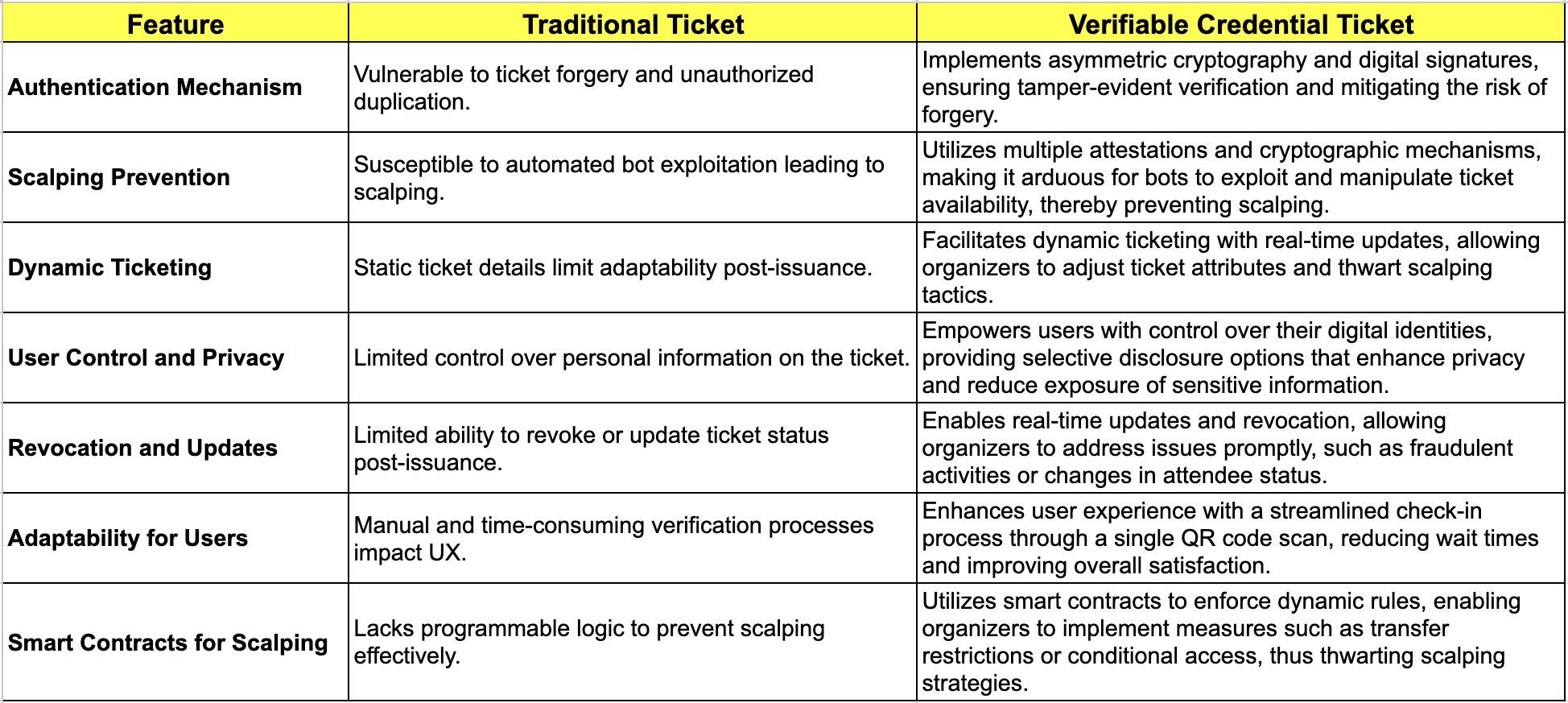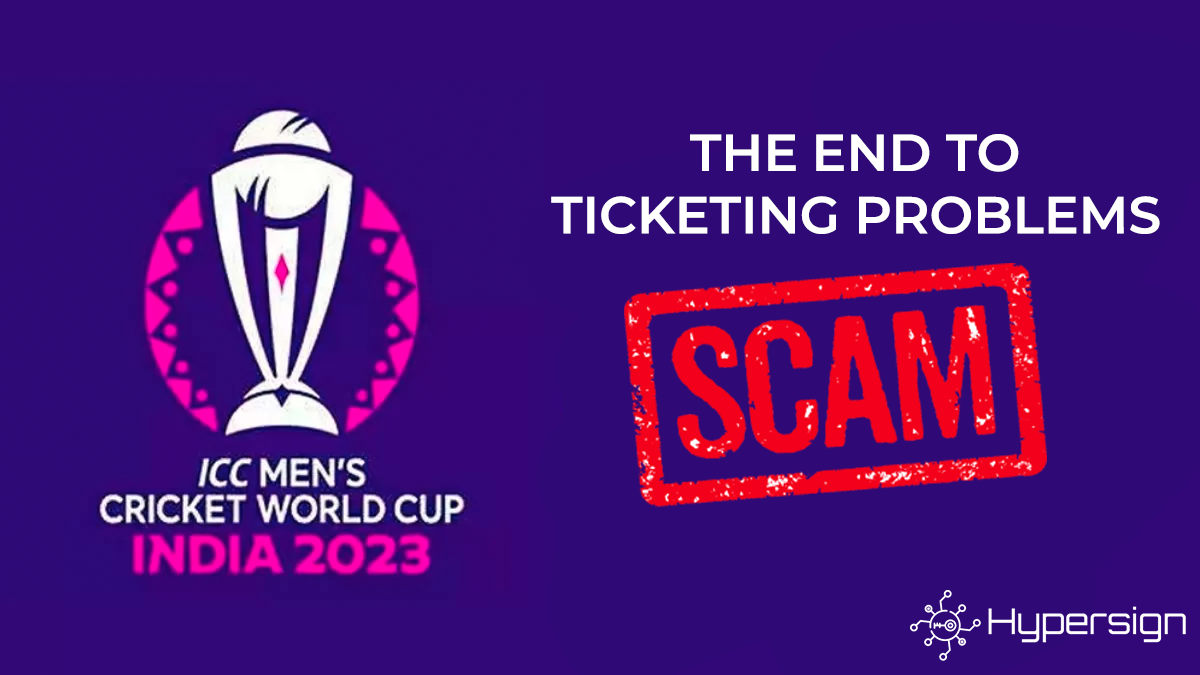The sporting events market is ever-growing; according to a report, the Sporting Events Market is projected to grow by USD 90.42 billion with a CAGR of 8.23% from 2021 to 2026. The study suggests that increasing spending on sports sponsorships is a crucial factor driving the global sporting events market growth.
From the fan’s perspective, the anticipation of securing tickets to coveted events collides with stark realities in the online ticketing realm. The recent chaos surrounding Cricket World Cup 2023 ticket sales vividly showcases long-standing issues—ranging from rampant ticket black market to compromised event security and leaked citizen data.
Challenges in Event Ticketing: The AfterMarket’s Dark Side Unveiled
Ticket Scalping Chaos
Ticket scalping, facilitated by bots and hackers and Aftermarket hunters, has become an epidemic, with tickets being snapped up within seconds and access to the public severely restricted. This undermines fairness and exposes fans to exorbitant prices and potential fraud. Here are a few cases that have come into public notice recently:
Event Security Compromises
Traditional identity verification processes at events lead to inefficiencies and potential security breaches. The recent Cricket World Cup incident, where corrupt officials allowed people to sneak in for a price, highlights the urgency for a robust security infrastructure.
Data Privacy Concerns
The leaked citizen data during ticket sales poses a significant threat, violating privacy and potentially leading to identity theft. As the world grapples with increasing data breaches, safeguarding personal information becomes critical to any ticketing system.
Service providers that require Personal Identifiable Information of customers often ignore the security of data storage and we see time and again the personal data of millions of Indians listed on the dark web for sale for a few thousand dollars.
Revolutionizing Event Ticketing
In the realm of event ticketing, the integration of Verifiable Credentials is a transformative solution to combat the persistent challenge of ticket scalping. Imagine a scenario where a single QR code, generated through a tamper-evident credential system, consolidates a verified identity and event ticket, expediting the check-in process at the event venue.
This digital proof of authenticity fortifies security by requiring attestations from multiple sources, making fraudulent entries significantly more difficult. Beyond the immediate benefits of streamlined ticket verification, Verifiable Credentials, coupled with Decentralized Identifier (DID) technology, champion user privacy and control over digital identities, aligning seamlessly with global data privacy laws.
The cryptographic marvels of Zero-Knowledge Proofs and Selective Disclosure mechanisms further enhance user privacy, providing a multifaceted approach to fortifying event security. This holistic technological integration not only addresses the intricate challenges of ticket scalping but also creates a seamless and secure experience for event attendees, showcasing the potential of these advancements in reshaping the landscape of event ticketing.
Recognized by the World Wide Web Consortium (W3C), the Hypersign stack, including Verifiable Credentials, is pivotal in addressing ticket scalping. These credentials offer tamper-evident, verifiable, and reputable proof, instilling trust and resilience against bot exploitation.
Decentralized Identifiers (DID)
Integration of Decentralized Identifier (DID) technology, also recognized by W3C, emerges as a comprehensive solution. DIDs empower individuals to control their digital identities securely, aligning with global data privacy laws and championing user consent.
Cryptographic Marvels and Cavach
Beyond Verifiable Credentials and DIDs, cryptographic marvels like Zero-Knowledge Proofs and Selective Disclosure mechanisms enhance user privacy. Introducing Cavach, a privacy-first Aadhaar verification solution by Hypersign, addresses privacy concerns, enabling businesses to verify users 'on the fly' while adhering to data protection laws like DPDP 2023.
Fortifying Event Security with Verifiable Credentials
Traditional identity verification processes are streamlined by Verifiable Credentials, consolidating a verified identity and event ticket into a single QR code. This expedites the check-in process and fortifies security by requiring attestations from multiple sources, making fraudulent entries arduous.
Let’s look at a comparison between traditional tickets and verifiable credentials-based tickets to understand the solution clearly:

From Demo to Reality
In a recent demonstration at MotoGP Bharath 2023, Verifiable Credentials & Selective Disclosure technology was used to seamlessly verify the age of people at the event for alcohol sales—this tangible proof promises event organizers a secure and efficient means of confirming attendees' identities. The theoretical potential of VCs transforms into practical application, offering a glimpse into a future where ticketing processes are smoother, fairer, and more secure.
In a research project with a co-working space, we created a flow for issuing a day pass (one-day entry) into the co-working space using Verifiable Credentials, making the buying process more reliable and the check-in hassle-free; more on this in the case study here; the working demo below:
As the event industry grows and more and more such events come to light, adopting Verifiable Credentials stands as a beacon of hope. This revolutionary solution has the power to dismantle the age-old challenges of scalping, slash queue times, and fortify overall event security. In embracing innovation, the ticketing industry paves the way for a future where fans experience a ticketing renaissance—one marked by seamlessness, fairness, and security. The stage is set; the curtain rises on a new era in ticketing.
About Hypersign
Hypersign is an innovative, permissionless blockchain network that manages digital identity and access rights. Rooted in the principles of Self-Sovereign Identity (SSI), Hypersign empowers individuals to take control of their data and access on the internet. It provides a scalable, interoperable, and secure verifiable data registry (VDR) that enables various use cases based on SSI. Built using the Cosmos-SDK, the Hypersign Identity Network is recognized by W3C (World Wide Web Consortium), promoting a seamless and secure identity management experience on the Internet.
Get in touch with us today to understand how you could implement Verifiable Credentials based ticketing in your business contact@hypersign.id.



















